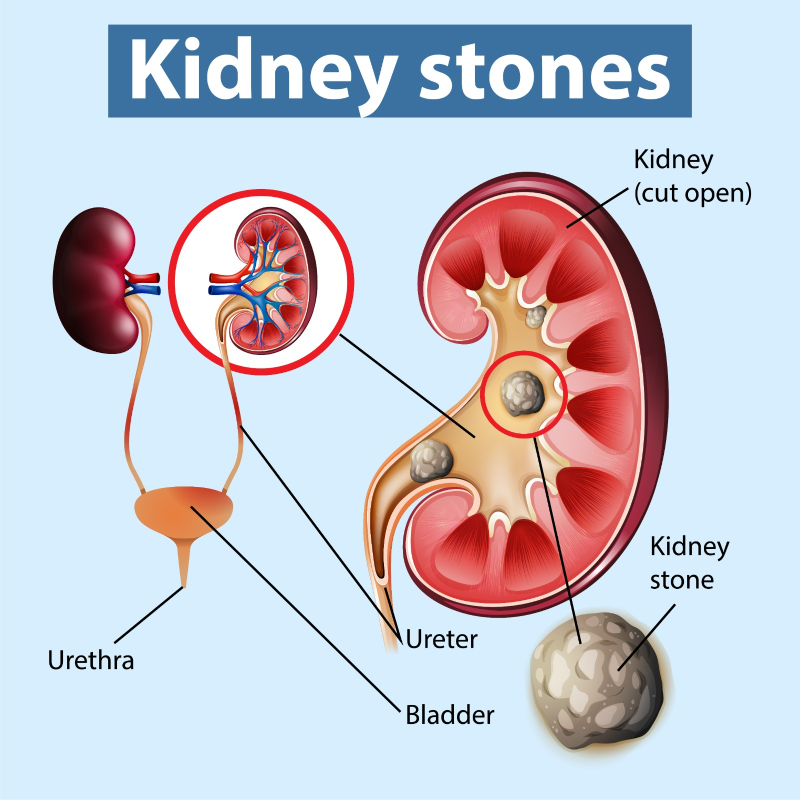Kidney stones are a serious health issue because the detection of kidney stones in normally healthy people is on the rise. Stones that are formed in the kidneys may stay in the kidney or travel down the ureter. Very small stones move out through urine without causing any pain. Small kidney stones may cause moderate pain whereas large ones may lead to severe pain. Stones stuck in the ureter may cause severe symptoms and complications. In most cases, kidney stones that cause irritation, infection, and blockage may begin to hurt.
Four major types of kidney stones
- Uric acid stones (common type – mostly run in families)
- Calcium oxalate or calcium phosphate stones (the most common type of kidney stones)
- Magnesium ammonium phosphate (less common type)
- Cysteine
Learn more about “kidney stones types and formation”
What are the symptoms of kidney stones?
Kidney stones symptoms
- Nausea & vomiting
- Severe lower back pain
- Fever & chills
- Blood in the urine
- Urine that smells bad
Who gets kidney stones (causes of kidney stones)?
- Kidney infections
- Family history
- Excess salt and sugar intake
- Sedentary lifestyle
- Dehydration (drinking too little water)
- Obesity (excess body weight)
- Post Weight loss surgery
What are the risk factors for kidney stone formation?
One of the major risk factors for the formation of kidney stones is dehydration. The other factors may include kidney disease, obesity, and consuming foods high in oxalates.
Those who are prone to kidney stone formation should drink enough water to keep themselves well-hydrated. Drinking enough fluids throughout the day can help reduce the risk of stone formation by around half. Individuals who are more likely to form kidney stones owing to their strong family history, lifestyle, and diet should aim to drink more than 3 liters of water per day.
Why do some people develop kidney stones?
The most common type of kidney stone – calcium oxalate stone contains calcium. A healthy and nutritious diet contains calcium. Kidneys remove extra calcium from the body, but some people tend to develop kidney stones as they retain extra calcium. This calcium combines with oxalate crystals and turns into kidney stones (calcium oxalate). In some people, kidney infections may lead to the formation of stones containing magnesium and ammonia. In some cases, obesity, a sedentary lifestyle, and other dietary factors can lead to the formation of stones
A very rare type of cystine stones tend to run in families.
Some foods such as potatoes, spinach, nuts, chocolate, and tea have high oxalates. They increase oxalate contents in urine. Doctors advise people with stone formation risk to consume these foods in moderation.
An experienced nephrologist takes into account all these factors while investigating the cause behind the formation of kidney stones.
Bottom Line
If you think that you are at risk owing to a family history of kidney stones then meet your nephrologist. The doctor will help in better assessment and evaluation of your risk based on your lifestyle, dietary habits, and fluid intake. And also make sure that you keep yourself well-hydrated all the time. If you have a personal and previous history of kidney stone formation then talk to your nephrologist for an apt evaluation of potential risk factors, proper assessment of your health, and preventive strategies.
Next Blog – “How to Prevent Kidney Stones Formation”

Leave a Reply